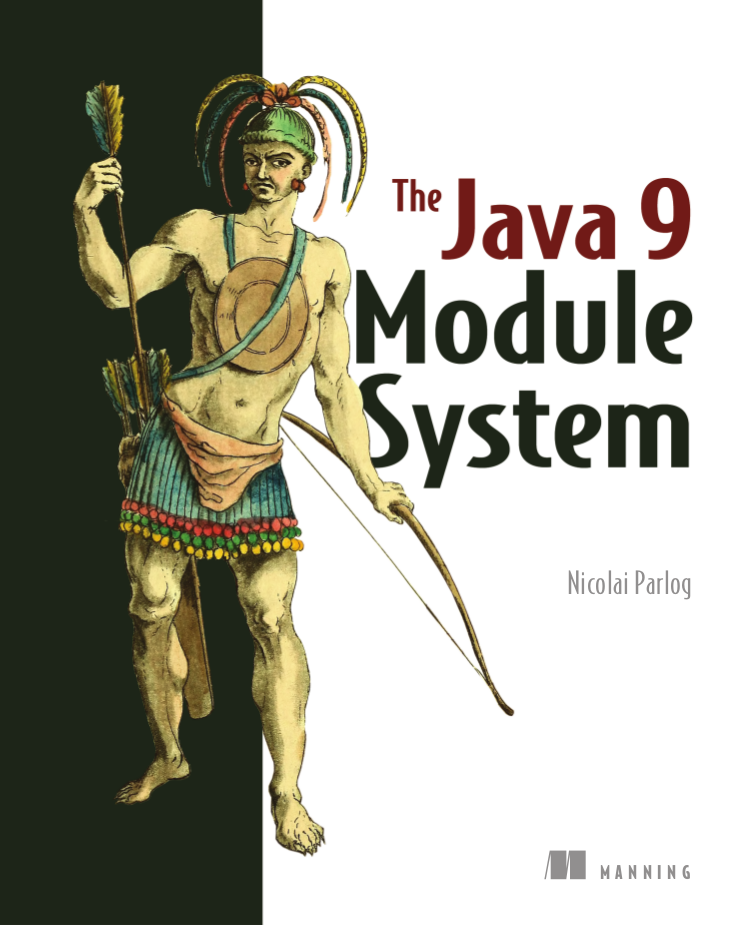Map<String, User> userById;
Map<String, Address> addrById;
Stream<User> users() {
return userById.values().stream();
}
Stream<UserAddress> userAddresses() {
return users()
.map(user -> UserAddress.of(
user, addrById.get(user.id())));
}Expert Java 8
Lambdas, Streams, Optionals
For Afficionados
Public Service Announcement
you need to be proficient with Java 8
some of what follows is merely my opinion
slides at slides.codefx.org
Streams
| In APIs |
| Exception Handling |
| Finding Elements |
| Performance |
Streams
| In APIs |
| Exception Handling |
| Finding Elements |
| Performance |
Using streams in your APIs.
Interesting Stream Properties
streams are unmodifiable
streams are easy to transform
streams are lazy
⇝ Good way to enrich data in layers.
Enrichment Example
Enrichment Example
Map<Address, List<Order>> ordersByAddr;
Stream<Delivery> deliveries() {
return userAddresses().flatMap(this::deliveriesFor);
}
Stream<Delivery> deliveriesFor(UserAdress userAddr) {
return ordersFor(userAddr)
.map(order -> Delivery.of(userAddr, order));
}
Stream<Order> ordersFor(UserAdress userAddr) {
return ordersByAddr
.get(userAddr.address()).stream();
}Guidelines
streams can only be traversed once
⇝ ideally returned streams can be recreated endlesslyduring traversal collection must not be mutated
⇝ stick to layers instead of cycles
(can be harder than it sounds)decide careful where to call
parallel()
Accepting Streams
Returning streams is ok.
What about passing them as parameters?
streams can only be traversed once!
caller must assume stream is traversed
works for obvious consumer functions
possibly a transformed stream can be returned
Stream Param Example
// consuming the passed stream
void addUsers(Stream<User> users) {
users.forEach(this.users::add)
}
// transforming the passed stream
Stream<UserAddress> userAddresses(Stream<User> users) {
return users
.map(user -> UserAddress.of(
user, addrById.get(user.id())));
}Reflection On APIs
Returning Streams
returning streams is great
(unmodifiable but transformable)preferably if streams can be recreated
can be used to gradually enrich data
Reflection On APIs
Passing Streams
caller must assume stream is traversed
works for obvious consumers
transformations can be hard to track
never return a traversed stream
(obvious, right?!)
Reflection On APIs
But Look Out
streams can only be traversed once
no mutation during traversal
don’t make chains too long or
debuggability suffers
Streams
| In APIs |
| Exception Handling |
| Finding Elements |
| Performance |
Handling checked exceptions in Streams.
Setting the Scene
Stream<User> parse(Stream<String> strings) {
// compile error:
// "incompatible thrown types ParseException"
return strings.map(this::parse);
}
User parse(String userString) throws ParseException {
// ...
}Which options do we have?
Try in Lambda
Stream<User> parse(Stream<String> strings) {
return strings
.map(string -> { try {
return parse(string);
} catch (ParseException ex) {
return null;
}})
.filter(Objects::nonNull);
}super ugly
requires extra clean-up step
handling exception locally can be hard
troublesome elements "disappear"
Try in Method
Stream<User> parse(Stream<String> strings) {
return strings
.map(this::tryParse)
.filter(Objects::nonNull);
}
private User tryParse(String string) {
try { return parse(string); }
catch (ParseException ex) { return null; }
}somewhat ugly
requires extra clean-up step ("far away")
handling exception locally can be hard
troublesome elements "disappear"
Sneaky Throws
How to "trick the compiler":
static Function<T, R> hideException(
CheckedFunction<T, R, Exception> function) {
return element -> {
try {
return function.apply(element);
} catch (Exception ex) {
return sneakyThrow(ex);
}
};
}
// sneakyThrow does shenanigans with generics
// and unchecked casts to "confuse the compiler"Sneaky Throws
Stream<User> parse(Stream<String> strings) {
return strings
.map(Util.hideException(this::parse));
}very surprising (hides a bomb in the stream!)
stream executor has to handle exception
can’t
try-catch(ParseException)because
checked exceptions need to be declaredexception aborts stream pipeline
Please never do that!
Wrap in Unchecked
Another Util method:
static Function<T, R> uncheckException(
CheckedFunction<T, R, Exception> function) {
return element -> {
try {
return function.apply(element);
} catch (Exception ex) {
throw new IllegalArgumentException(
element, ex);
}
};
}Wrap in Unchecked
Stream<User> parse(Stream<String> strings) {
return strings
.map(Util.uncheckException(this::parse));
}stream executor has to handle exception
exception aborts stream pipeline
Remove Trouble
Another Util method:
static Function<T, Optional<R>> wrapOptional(
CheckedFunction<T, R, Exception> function) {
return element -> {
try {
return Optional.of(
function.apply(element));
} catch (Exception ex) {
return Optional.empty();
}
};
}Remove Trouble
Stream<User> parse(Stream<String> strings) {
return strings
.map(Util.wrapOptional(this::parse))
// Java 9: .flatMap(Optional::stream)
.filter(Optional::isPresent)
.map(Optional::get);
}requires extra clean-up step
(at least supported by compiler)troublesome elements "disappear"
Expose With Try
Try<T> is similar to Optional:
has two states: error or success
allows to process them with functions
parameterized in type of success result
Another Util method:
static Function<T, Try<R>> wrapTry(
CheckedFunction<T, R, Exception> function) {
return element -> Try.of(
() -> function.apply(element));
}Expose With Try
Stream<Try<User>> parse(Stream<String> strings) {
return strings
.map(Util.wrapTry(this::parse));
}requires external library (e.g. Javaslang)
encodes possibility of failure in API
makes error available to caller
error is encoded as Exception/Throwable
Expose With Either
Either<L, R> is similar to Optional:
has two states: left or right
allows to process them with functions
parameterized in types of left and right
if used for failure/success, exception goes left
(by convention)
Expose With Either
Another Util method:
static Function<T, Either<EX, R>> wrapEither(
CheckedFunction<T, R, EX> function) {
return element -> {
try {
return Either.right(
function.apply(element));
} catch (Exception ex) {
return Either.left((EX) ex);
}
};
}Expose With Either
Stream<Either<ParseException, User>> parse(
Stream<String> strings) {
return strings
.map(Util.wrapEither(this::parse));
}requires external library (e.g. Javaslang)
encodes possibility of failure in API
makes error available to caller
error has correct type
Reflection on Exceptions
don’t be smart and "trick the compiler"
return a clean stream: no nulls!
ideally, use types to express possibility of failure
Streams don’t cooperate well with checked exceptions.
See that as a chance to use functional concepts
for greater good of code base!
Streams
| In APIs |
| Exception Handling |
| Finding Elements |
| Performance |
Be careful how you find!
Finding First or Any
Stream::findFirst and findAny:
return an arbitrary element from the Stream
if stream has encounter order,
findFirstreturns first element
Often used after a filter.
Find Example
Optional<User> findUser(String id) {
return users.stream()
.filter(user -> user.id().equals(id))
.findFirst();
}Same as the loop:
Optional<User> findUser(String id) {
for (User user : users)
if (user.id().equals(id))
return Optional.of(user);
return Optional.empty();
}Small Observation
I sometimes see the following:
code’s correctness depends on only
one element passing the filterbut there are no additional checks
⇝ The easy solution might be the wrong one!
(Applies to the loop as well.)
Finding Only
Make sure there is only one element:
Optional<User> findUser(String id) {
return users.stream()
.filter(user -> user.id().equals(id))
.reduce(toOnlyElement());
}
static BinaryOperator toOnlyElement() {
return (element, otherElement) -> {
throw new IllegalArgumentException();
};
}Instead of reduce, collect could be used.
Properties of Finding Only
Upsides:
guarantees correctness by failing fast
expresses intent
Downsides:
materializes entire stream
Reflection On Finding
If correctness depends on only one element
surviving an ad-hoc filter:
findFirst,findAnydo not sufficeuse a reducer or collector to assert uniqueness
comes with a performance penalty
Additional Sources
Stream
| In APIs |
| Exception Handling |
| Finding Elements |
| Performance |
Performance is too long to go into.
Great talk by Stuart Marks and Brian Goetz:
Thinking in Parallel (JavaOne 2016)
Optional
Everybody's Favorite Bike Shed!
| Usage Patterns |
| Value-Based Class |
| Not a Monad |
Optional
| Usage Patterns |
| Value-Based Class |
| Not a Monad |
The Java community strongly disagrees
on how to best use Optional.
Some insights into the discussion…
Basic Rules
First some basic rules:
never, ever, ever just call
get
without checkingisPresentfirstprefer functional style
(map,flatMap,ifPresent,orElse, …)make everyone setting
Optionaltonull
buy a round of drinks or wear a silly hat
Basic Rules
Nobody (?) wants to see …
Optional.ofNullable(mango)
.ifPresent(System.out::println);... instead of …
if (mango != null)
System.out.println(mango);Different Opinions
don’t use it unless
absolutely necessaryuse it as return value
use it everywhere
Don’t Use It!
Assumptions
API is verbose and invites misuse
makes stack traces harder to debug
not serializable
unsupported by various frameworks
dereferencing reduces performance
instances increase memory consumption
no benefits over explicit
nullhandling
Don’t Use It!
Conclusions
Optionalsucksonly use it if existing API returns it
unpack quickly!
(Mark Struberg, Stephen Connolly, Hugues Johnson)
Limited Return Value
Assumptions
was designed as a return value
not serializable
long-lived instances increase
memory consumptionboxing method arguments is verbose
Limited Return Value
Conclusions
use as return value if
returning null is error-proneno instance variables
no method parameters
instances should generally be short-lived
(Stuart Marks, Brian Goetz)
⇝ This should be your default choice!
Return Value
Assumptions
returning
nullis always error-pronerest as before
Conclusions
use as return value whenever
value can be absentrest as before
(Stephen Colebourne)
Use Everywhere!
Assumptions
using
Optionalinstead ofnull
liftsnull-handling into the type systemmakes any
nullan implementation error
(great for debugging)performance arguments can be discarded
unless proven to be relevant
Use Everywhere!
Conclusions
avoid optionality through good design
(good recommendation in general)use
Optionalinstead ofnulleverywhereconsider providing overloads
for optional method parameters
(Mario Fusco, me)
Use Everywhere!
Overload Example
String bar(Optional<String> drink) {
return drink.map(this::bar)
.orElseGet(this::bar);
}
String bar(String drink) { /* ... */ }
String bar() { /* ... */ }Reflection on Usage
Whatever you decide:
pick my recommendation! :)
make it a team decision
put it into your code style
learn over time
Relaxing rules is easier
than making them stricter!
Additional Sources
The Mother of All Bikesheds (Stuart Marks)
What’s the Point? (huguesjohnson.com)
Design Of Optional (codefx.org)
Pragmatic Approach (joda.org)
Strict Approach (codefx.org)
Optional
| Usage Patterns |
| Value-Based Class |
| Not a Monad |
Optional implements a new "pattern"
that requires us to be careful with what we do.
Value-Based Class?
Did you RTFM?
Optional Javadoc says:
This is a value-based class; use of identity-sensitive operations […] on instances of
Optionalmay have unpredictable results and should be avoided.
What does it mean?
Value Types In Future Java
Future Java (10?) will contain value types:
pass by value
(copied when passed as params)immutable
no identity
Very similar to today’s primitives.
No Identity?
Class instances have identity:
each
new Integer(5)creates a new instancethey are not identical (
!=, different locks, …)
Value types will have no identity:
there are no two different
int 5only their value matters
But Isn’t This Java 8?
From value types to value-based classes:
value types require wrappers/boxes
(just like primitives do today)value-based classes might turn out
wrapping value typesas an optimization the JVM will
create and destroy them at will
⇝ Wrappers have identity but it is unstable
Identity Crisis
Map<User, LocalDateTime> userLogins;
Map<LocalDateTime, String> messages;
String lastLoginMessage(User user) {
LocalDateTime lastLogin =
userLogins.get(user); (1)
String message = "Was " + lastLogin;
messages.put(lastLogin, message); (2)
return message;
}getmight return an instance or a valueputmight receive an instance or a value
Requirements For VBC
- declaration site
final and immutable
equals,hashCode,toString
must only rely on instance state…
- use site
no use of
==, identity hash code,
locking, serialization
(None of this is checked by the JVM.)
VBC in Java 8
java.utilOptional[Double,Long,Int]java.timeDuration,Instant,Period,
Year,YearMonth,MonthDay,
Local…,Offset…,Zoned…java.time.chronoHijrahDate,JapaneseDate,MinguaDate,ThaiBuddhistDate
Reflection on VBC
With Optional and other value-based classes:
never rely on their identity
mainly no
==, locking, serialization
If this works out,
performance hit all but disappears!
Additional Sources
Value-Based Classes (codefx.org)
Optional
| Usage Patterns |
| Value-Based Class |
| Not a Monad |
Optional saves us from null
at the expense of breaking Monad Laws.
(No math, I promise!)
Left Identity
For a Monad, this should always be true:
Objects.equals(
ofNullable(x).flatMap(f),
f.apply(x));But:
Function f = s -> of("mango")
Optional ofMap =
ofNullable(null).flatMap(f);
Optional apply = f.apply(null);
// Optional[] != Optional["mango"]Associativity
For a Monad, this should always be true:
Objects.equals(
ofNullable(x).map(f).map(g),
ofNullable(x).map(f.andThen(g)));But:
Function f = s -> null;
Function g = s -> "mango";
Optional map = of("kiwi").map(f).map(g);
Optional then = of("kiwi").map(f.andThen(g));
// Optional[] != Optional["mango"]Root Cause Analysis
Optionalmapsnulltoempty()flatMapandmapare not executed
on empty optionalsthe first occurrence of
null/empty
stops the chain of executions
So What?
refactoring can change
which code gets executedfunctions that can "recover" from
null
might not get executedparticularly error-prone when
functions have side effects
(they generally should not but it happens)
Reflection on Monads
be aware that
Optionalis no well-behaved monadsee it as a way to avoid handling
nullbe aware that refactoring can cause problems
ifnullwas special cased
Additional Sources
More on Optional Being Broken (atlassian.com)
… and Why It Matters (sitepoint.com)
Default Methods
Interface Evolution
General Approach
- New Version
interface is transitional (old and new outline)
default methods ensure existing code works
- Transition
client moves from old to new outline
default methods ensure code keeps working
- New Version
removes old outline
Adding Methods
Reasonable default impl exists:
- New Version
add the method with default impl
internal impls can override
internal callers use new method
- Transition
external callers use the method
That’s it.
Adding Methods
No reasonable default impl exists:
- New Version
add method with default impl throwing UOE
override method in all internal impls
- Transition
external impls override the method
external callers use the method
- New Version
make method abstract
internal callers use new method
Removing Methods
No external impls exist:
- New Version
deprecate method
internal callers stop calling method
- Transition
external callers stop using the method
- New Version
remove the method
(No default methods required.)
Removing Methods
External impls exist:
- New Version
deprecate method
provide default impl throwing UOE
internal callers stop calling method
- Transition
external callers stop using the method
external impls of the method are removed
- New Version
remove the method
Replacing Methods
Applies with new signature (name, parameters, …),
where methods are "functionally equivalent".
Otherwise it’s a matter of adding new
and removing old method.
Replacing Methods
- New Version
add new with default impl calling old
provide default impl of old calling new
deprecate old
internal impls override new instead of old
internal callers use new instead of old
Wtf, circular call?
ensures it does not matter which version is impl’d
must be thoroughly documented; tests help
Replacing Methods
- Transition
external impls override new instead of old
external callers use new instead of old
- New Version
make new abstract
remove old
Reflection On Evolution
If clients can be expected to update their code
default methods allow interface evolution
without breaking client code.
Mode is always the same:
release version with transitional outline
give clients time to update
release version with new outline
Additional Source
Interface Evolution (codefx.org)
New Javadoc Tags (codefx.org)
About Me
Nicolai Parlog
codefx.org
sitepoint.com/java
@nipafx /
+NicolaiParlog
Want More?
Module System: tiny.cc/j9ms
Newsletter: tiny.cc/fx-weekly
two-day Java 9 course
Zürich, 20.-21.04.
⇝ register at 42talents.com
or hire me!


